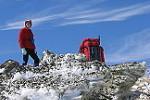Sh*t happens why not get ready?
Forum rules
The place for bushwalking topics that are not location specific.
The place for bushwalking topics that are not location specific.
33 posts
• Page 1 of 2 • 1, 2
Sh*t happens why not get ready?
We really need a civil defence network and authority here in Oz. we never ever seem to be ready for anything. Our cousins over the way do seem to do it better
Here's a link for people to browse though at their leisure
https://getready.govt.nz/
https://getready.govt.nz/prepared/household/supplies
By comparison we are not so earthquake prone but fire and floods probably worse off
Here's a link for people to browse though at their leisure
https://getready.govt.nz/
https://getready.govt.nz/prepared/household/supplies
By comparison we are not so earthquake prone but fire and floods probably worse off
Ve are too soon old und too late schmart
- Moondog55
- Lagarostrobos franklinii

- Posts: 11165
- Joined: Thu 03 Dec, 2009 4:15 pm
- Location: Norlane Geelong Victoria Australia
- Region: Victoria
- Gender: Male
-

tastrax - Lagarostrobos franklinii

- Posts: 2030
- Joined: Fri 28 Mar, 2008 6:25 pm
- Location: What3words - epic.constable.downplayed
- ASSOCIATED ORGANISATIONS: RETIRED! - Parks and Wildlife Service
- Region: Tasmania
Re: Sh*t happens why not get ready?
Yes I know. But my feeling is that this is too important to leave to an NGO
Ve are too soon old und too late schmart
- Moondog55
- Lagarostrobos franklinii

- Posts: 11165
- Joined: Thu 03 Dec, 2009 4:15 pm
- Location: Norlane Geelong Victoria Australia
- Region: Victoria
- Gender: Male
Re: Sh*t happens why not get ready?
Reading an article last week, I bookmarked this from Finland (yet to browse)
https://72tuntia.fi/en/
https://72tuntia.fi/en/
- Neo
- Athrotaxis selaginoides

- Posts: 1866
- Joined: Wed 31 Aug, 2016 4:53 pm
- Location: Port Macquarie NSW
- Region: New South Wales
- Gender: Male
Re: Sh*t happens why not get ready?
Yep Norway and Sweden apparently have similar
Why don't we?
Why don't we?
Ve are too soon old und too late schmart
- Moondog55
- Lagarostrobos franklinii

- Posts: 11165
- Joined: Thu 03 Dec, 2009 4:15 pm
- Location: Norlane Geelong Victoria Australia
- Region: Victoria
- Gender: Male
Re: Sh*t happens why not get ready?
SES? Rural fire brigades?
"Mit der Dummheit kämpfen Götter selbst vergebens."
-

north-north-west - Lagarostrobos franklinii

- Posts: 15490
- Joined: Thu 14 May, 2009 7:36 pm
- Location: The Asylum
- ASSOCIATED ORGANISATIONS: Social Misfits Anonymous
- Region: Tasmania
Re: Sh*t happens why not get ready?
Moondog55 wrote:We really need a civil defence network and authority here in Oz. we never ever seem to be ready for anything. Our cousins over the way do seem to do it better
Here's a link for people to browse though at their leisure
https://getready.govt.nz/
https://getready.govt.nz/prepared/household/supplies
By comparison we are not so earthquake prone but fire and floods probably worse off
These are government advice/information sites, they are not a reflection of how prepared the public are.
Establishing another government 'network' here would not magically change the way the public prepare, if they bother to prepare at all. Lots of information available for bush fire preparations yet few take much notice.
-

Warin - Athrotaxis selaginoides

- Posts: 1466
- Joined: Sat 11 Nov, 2017 8:02 am
- Region: New South Wales
Re: Sh*t happens why not get ready?
The difference is that in many parts of the world such preparations are mandatory and enforced by law. '
Which reminds me I have to get my Nomex out of the shed and back into the car
Which reminds me I have to get my Nomex out of the shed and back into the car
Ve are too soon old und too late schmart
- Moondog55
- Lagarostrobos franklinii

- Posts: 11165
- Joined: Thu 03 Dec, 2009 4:15 pm
- Location: Norlane Geelong Victoria Australia
- Region: Victoria
- Gender: Male
Re: Sh*t happens why not get ready?
Why are you making airy comparisons or perceived wants to and with countries that are vastly different to Australia? Among them Norway, Sweden — how are those countries models of how things should be done in the southern hemisphere?
Meanwhile, Australia, like NZ is an island nation. The critical difference is that NZ is an active, unstable volcanic island, diddly-squat on the Ring of Fire, is subjected to much more profound risks (especially in major populated areas) than Australia, among them earthquakes of 5++ magnitude (e.g. Christchurch), tsunami, volcanic eruptions and associated earth instability (landslides, avalanches etc. ). Australia has the Army (Engineers — and they do a marvellous job in flood mitigation, building, rescue etc.) individual State Emergency Services (SES), MFB and CFA (city and regional respectively), RFBs in other States. Cyclone Tracey in the NT was the catalyst to improve not government or NGO response, but building standards. You can see (in Darwin) then-and-now records of how Darwin is better prepared for disasters than 50 years back.
Where can you point to an example in Australia that has not been handled effectively given that it could not have been seen prior, or prevented from occurring? Nordic countries do not translate well to southern hemisphere countries.
Meanwhile, Australia, like NZ is an island nation. The critical difference is that NZ is an active, unstable volcanic island, diddly-squat on the Ring of Fire, is subjected to much more profound risks (especially in major populated areas) than Australia, among them earthquakes of 5++ magnitude (e.g. Christchurch), tsunami, volcanic eruptions and associated earth instability (landslides, avalanches etc. ). Australia has the Army (Engineers — and they do a marvellous job in flood mitigation, building, rescue etc.) individual State Emergency Services (SES), MFB and CFA (city and regional respectively), RFBs in other States. Cyclone Tracey in the NT was the catalyst to improve not government or NGO response, but building standards. You can see (in Darwin) then-and-now records of how Darwin is better prepared for disasters than 50 years back.
Where can you point to an example in Australia that has not been handled effectively given that it could not have been seen prior, or prevented from occurring? Nordic countries do not translate well to southern hemisphere countries.
Conversation about the weather is the last refuge of the unimaginative.
—Oscar Wilde, 1890.
—Oscar Wilde, 1890.
-

Biggles - Phyllocladus aspleniifolius

- Posts: 512
- Joined: Thu 14 May, 2009 12:14 pm
- Location: Castlemaine & Geelong
- Region: Victoria
- Gender: Male
Re: Sh*t happens why not get ready?
Simply because these countries seem to be very good at getting people to be responsible for their own safety and comfort. Something Australias "She'll be right Mate" attitude doesn't ever address.
I well remember Cyclone Tracy and how quickly things went pear shaped and as a country we still don't seem to have governments that can be prepared to be prepared.
The only real difference between the Northern hemisphere and us is we don't have to prepare for temperatures as low as -35C and we get a bit hotter in summer.
People are people tho.
I well remember Cyclone Tracy and how quickly things went pear shaped and as a country we still don't seem to have governments that can be prepared to be prepared.
The only real difference between the Northern hemisphere and us is we don't have to prepare for temperatures as low as -35C and we get a bit hotter in summer.
People are people tho.
Ve are too soon old und too late schmart
- Moondog55
- Lagarostrobos franklinii

- Posts: 11165
- Joined: Thu 03 Dec, 2009 4:15 pm
- Location: Norlane Geelong Victoria Australia
- Region: Victoria
- Gender: Male
Re: Sh*t happens why not get ready?
Moondog55 wrote:The difference is that in many parts of the world such preparations are mandatory and enforced by law. '
Which reminds me I have to get my Nomex out of the shed and back into the car
I'd bet those standards occurred after some event... much like Australian building standards for cyclones and bushfires.
Behavioral standards such as having a minimum of fortnights food supply in case of flood are not enforced ... but fairly typical in northern Australia homesteads. And RFDS medical boxes again not mandatory but still
Not every thing must be a law for people to actually do, the few that don't would probably be the same people that don't comply with a law.
I put a spoon drain on my property to divert surface water away from my house.. not required by law but 'a good idea' for my place as it is on quite a slope. Making laws that cover every situation .. far too complex. And stupid will still be stupid even with all these complex laws.
-

Warin - Athrotaxis selaginoides

- Posts: 1466
- Joined: Sat 11 Nov, 2017 8:02 am
- Region: New South Wales
Re: Sh*t happens why not get ready?
Moondog55 wrote:We really need a civil defence network and authority here in Oz. we never ever seem to be ready for anything.
SES grew from the Civil Defence Service and is technically a civil defence organisation. A framework for better cooperation and coordination amongst the existing services and between states would be a good idea. Is that the sort of thing you mean?
Being prepared in Melbourne or Sydney will be vastly different from being prepared in a rural/remote setting where there may be only one road in
and out and the distance to the closest centre is measured in tens or hundreds of kilometres. How do you cover those different scenarios in a single law?
Maybe what we need are regular reminders to "be prepared" rather than laws that mandate x,y and z. As Warin pointed out, there will be a subset who are not prepared now and are unlikely to comply with any law. I suspect a lot of people fall into the 'it will never happen to me' category. Some change their behaviour once it does happen to them, others just continue with their heads in the sand.
I'm more of an educate rather than legislate person.
This makes me the first man to climb Mount Everest backwards, without oxygen...or even a jumper.
-

matagi - Phyllocladus aspleniifolius

- Posts: 682
- Joined: Sun 01 Jan, 2012 5:51 pm
- Region: Tasmania
Re: Sh*t happens why not get ready?
My memories of the Civil Defence are that is was mainly concerned with surviving a nuclear war. Under the impression that it was a Federal organisation and that the SES are state based and governed. Education would beat legislation but I'm not an optimist
Ve are too soon old und too late schmart
- Moondog55
- Lagarostrobos franklinii

- Posts: 11165
- Joined: Thu 03 Dec, 2009 4:15 pm
- Location: Norlane Geelong Victoria Australia
- Region: Victoria
- Gender: Male
Re: Sh*t happens why not get ready?
Yeesh
Sent from my SM-S906E using Tapatalk
Sent from my SM-S906E using Tapatalk
- Walk_fat boy_walk
- Lagarostrobos franklinii

- Posts: 2349
- Joined: Sat 21 Nov, 2009 6:59 am
- Gender: Male
Re: Sh*t happens why not get ready?
Moondog55 wrote:My memories of the Civil Defence are that is was mainly concerned with surviving a nuclear war.
A minor correction: you DON'T survive a nuclear war.
Cheers
Roger
-

rcaffin - Athrotaxis selaginoides

- Posts: 1308
- Joined: Thu 17 Jul, 2008 3:46 pm
Re: Sh*t happens why not get ready?
Opinions obviously divided on that subject Roger.
Immediate blast zone maybe not but outside that "It Depends" and too many factors to say categorically Yes or No
Immediate blast zone maybe not but outside that "It Depends" and too many factors to say categorically Yes or No
Ve are too soon old und too late schmart
- Moondog55
- Lagarostrobos franklinii

- Posts: 11165
- Joined: Thu 03 Dec, 2009 4:15 pm
- Location: Norlane Geelong Victoria Australia
- Region: Victoria
- Gender: Male
Re: Sh*t happens why not get ready?
All I've got to say is about ten or so years ago I got interested in plants and thus native plants and bushwalking. Then thought if the *&%$#! hits the fan it's going to be gridlock even in a coastal regional town, so I wanted to be able to put a pack on my back and walk off. Launch overnight bushwalking 
I found this forum and went down the UL rabbit hole and that led to officially learning to be an outdoor guide then several seasons leading camps. No I don't have a bug out bag packed but if I had to go I have some skills and some nice kit Meanwhile I should pack a bag and map and wander off. It's too easy to dream but stay home
Meanwhile I should pack a bag and map and wander off. It's too easy to dream but stay home 
I found this forum and went down the UL rabbit hole and that led to officially learning to be an outdoor guide then several seasons leading camps. No I don't have a bug out bag packed but if I had to go I have some skills and some nice kit
- Neo
- Athrotaxis selaginoides

- Posts: 1866
- Joined: Wed 31 Aug, 2016 4:53 pm
- Location: Port Macquarie NSW
- Region: New South Wales
- Gender: Male
Re: Sh*t happens why not get ready?
Moondog55 wrote:Opinions obviously divided on that subject Roger.
Immediate blast zone maybe not but outside that "It Depends" and too many factors to say categorically Yes or No
Nuclear war, not one or two bombs. And if you do survive, you'll most likely wish you hadn't.
"Mit der Dummheit kämpfen Götter selbst vergebens."
-

north-north-west - Lagarostrobos franklinii

- Posts: 15490
- Joined: Thu 14 May, 2009 7:36 pm
- Location: The Asylum
- ASSOCIATED ORGANISATIONS: Social Misfits Anonymous
- Region: Tasmania
Re: Sh*t happens why not get ready?
Makes me wonder if there really is a strategic nuclear bunker under parliament house in Canberra as rumour says.
Ve are too soon old und too late schmart
- Moondog55
- Lagarostrobos franklinii

- Posts: 11165
- Joined: Thu 03 Dec, 2009 4:15 pm
- Location: Norlane Geelong Victoria Australia
- Region: Victoria
- Gender: Male
Re: Sh*t happens why not get ready?
Moondog55 wrote:Opinions obviously divided on that subject Roger.
Immediate blast zone maybe not but outside that "It Depends" and too many factors to say categorically Yes or No
There are no winners in a nuclear war.
And there are no survivors after a nuclear bomb!
No "it depends".
Conversation about the weather is the last refuge of the unimaginative.
—Oscar Wilde, 1890.
—Oscar Wilde, 1890.
-

Biggles - Phyllocladus aspleniifolius

- Posts: 512
- Joined: Thu 14 May, 2009 12:14 pm
- Location: Castlemaine & Geelong
- Region: Victoria
- Gender: Male
Re: Sh*t happens why not get ready?
Depends on how big that bomb is.
Seeing as how Australia has this huge military target in the middle of the country I hope we never see one hit here.
Personally I am more concerned about cyclones, floods and bushfires and heat related collapse of the power grid because we are still grid-tied here until we can afford a battery system
Seeing as how Australia has this huge military target in the middle of the country I hope we never see one hit here.
Personally I am more concerned about cyclones, floods and bushfires and heat related collapse of the power grid because we are still grid-tied here until we can afford a battery system
Ve are too soon old und too late schmart
- Moondog55
- Lagarostrobos franklinii

- Posts: 11165
- Joined: Thu 03 Dec, 2009 4:15 pm
- Location: Norlane Geelong Victoria Australia
- Region: Victoria
- Gender: Male
Re: Sh*t happens why not get ready?
Moondog55 wrote:Depends on how big that bomb is.
[...]
Big enough to ruin your whole day!
Conversation about the weather is the last refuge of the unimaginative.
—Oscar Wilde, 1890.
—Oscar Wilde, 1890.
-

Biggles - Phyllocladus aspleniifolius

- Posts: 512
- Joined: Thu 14 May, 2009 12:14 pm
- Location: Castlemaine & Geelong
- Region: Victoria
- Gender: Male
Re: Sh*t happens why not get ready?
The average person in nz is as prepared as most.Moondog55 wrote:We really need a civil defence network and authority here in Oz. we never ever seem to be ready for anything. Our cousins over the way do seem to do it better
Here's a link for people to browse though at their leisure
https://getready.govt.nz/
https://getready.govt.nz/prepared/household/supplies
By comparison we are not so earthquake prone but fire and floods probably worse off
In other words not at all.
Outdoor types,farmers,campers and trampers would be better than most.
And that is really only to manage for a few days.
Most who live in towns shop from day to day and wouldn't have long life food in the pantry or even know what to do with it.
Sent from my SM-A226B using Tapatalk
- Erniec2
- Nothofagus cunninghamii

- Posts: 9
- Joined: Mon 04 Mar, 2019 6:38 pm
- Region: New Zealand
Re: Sh*t happens why not get ready?
Yep I can overnight bushwalk a probably find water to treat, but have no hunting or bushtucker skills. And an elderly mother who I'd stick around for or have in tow ☺️
- Neo
- Athrotaxis selaginoides

- Posts: 1866
- Joined: Wed 31 Aug, 2016 4:53 pm
- Location: Port Macquarie NSW
- Region: New South Wales
- Gender: Male
Re: Sh*t happens why not get ready?
The first three days are said to be the worst; that's a kilo of rice and a few tins of some sort of protein and 3 to 5 litres of potable water. Anybody can store that much. You just have to think a little bit.
Ve are too soon old und too late schmart
- Moondog55
- Lagarostrobos franklinii

- Posts: 11165
- Joined: Thu 03 Dec, 2009 4:15 pm
- Location: Norlane Geelong Victoria Australia
- Region: Victoria
- Gender: Male
Re: Sh*t happens why not get ready?
Talking to those not on town water, it seems that being able to flush the toilet is the very 1st thing that becomes a problem. This happens when their sewerage or electric water pump or water supply is compromised. There's a reasonable likelyhood that some of that infrastructure will go down for large swathes of the popln. Add a trowel to the list and a large plant pot if you don't have a garden.
- keithj
- Athrotaxis cupressoides

- Posts: 307
- Joined: Sun 01 Nov, 2015 7:27 pm
- Region: New South Wales
- Gender: Male
Re: Sh*t happens why not get ready?
keithj wrote:Talking to those not on town water, it seems that being able to flush the toilet is the very 1st thing that becomes a problem.
Yep. Power goes and the water is just a trickle, regardless of how full the tanks are. Flushing can be done (also septic tanks here) but the cistern refill takes ages.
I always have a few water bottles in the fridge, plus the bladder and some more in the freezer, so drinking water isn't a problem for the first three or four days.
"Mit der Dummheit kämpfen Götter selbst vergebens."
-

north-north-west - Lagarostrobos franklinii

- Posts: 15490
- Joined: Thu 14 May, 2009 7:36 pm
- Location: The Asylum
- ASSOCIATED ORGANISATIONS: Social Misfits Anonymous
- Region: Tasmania
Re: Sh*t happens why not get ready?
I am curious. What do you do - what CAN you do, for the first 3 - 4 days after a nuclear bomb?
Hint: nothing. Then the radioactive dust will go right around the world.
Little Boy, Hiroshima, had a yield of ~15 ktons TNT. (corrected)
A modern bomb has a yield of - well, probably classified, as if it matters, but >> 100 kilotons.
Was it the UK gov't who suggested putting your head in a large paper bag? How very .... helpful.
Anyhow, the most appropriate advice I ever heard was to put your head between your knees and kiss your a**s goodbye.
Nuclear war gets the nickname of MAD: Mutually Assured Destruction.
Cheers
Roger (PhD, physicist)
Hint: nothing. Then the radioactive dust will go right around the world.
Little Boy, Hiroshima, had a yield of ~15 ktons TNT. (corrected)
A modern bomb has a yield of - well, probably classified, as if it matters, but >> 100 kilotons.
Was it the UK gov't who suggested putting your head in a large paper bag? How very .... helpful.
Anyhow, the most appropriate advice I ever heard was to put your head between your knees and kiss your a**s goodbye.
Nuclear war gets the nickname of MAD: Mutually Assured Destruction.
Cheers
Roger (PhD, physicist)
Last edited by rcaffin on Fri 20 Dec, 2024 4:46 pm, edited 1 time in total.
-

rcaffin - Athrotaxis selaginoides

- Posts: 1308
- Joined: Thu 17 Jul, 2008 3:46 pm
Re: Sh*t happens why not get ready?
Little Boy, Hiroshima, had a yield of ~15,000 tons TNT, not 15 tons.
Possible largest known bomb is Russian at 100Mt, that's 100,000,000 TNT
If you're feeling inclined, you can simulate the effects of various sizes of bomb hitting a location of your choice at https://nuclearsecrecy.com/nukemap/ at any altittude.
The effects are far more complex than dead/not dead at any particular distance or time or wind direction or terrain.
Linked is an example a 150Kt bomb (Russias most common bomb at particularly damaging height) aimed at Sydney harbour bridge - https://nuclearsecrecy.com/nukemap/?&kt ... ,5,1&zm=11
It has minor short term effects beyond Ryde, Manly and Maroubra albeit with Estimated fatalities: 110,840 and Estimated injuries: 351,390
Re: Longer term fallout effects - It's complicated & affected by peoples actions, height of detonation, wind, etc - see https://nuclearsecrecy.com/nukemap/faq/#fallout
It mentions -
My favorite free chatbot https://perplexity.ai suggests -
Possible largest known bomb is Russian at 100Mt, that's 100,000,000 TNT
If you're feeling inclined, you can simulate the effects of various sizes of bomb hitting a location of your choice at https://nuclearsecrecy.com/nukemap/ at any altittude.
The effects are far more complex than dead/not dead at any particular distance or time or wind direction or terrain.
Linked is an example a 150Kt bomb (Russias most common bomb at particularly damaging height) aimed at Sydney harbour bridge - https://nuclearsecrecy.com/nukemap/?&kt ... ,5,1&zm=11
It has minor short term effects beyond Ryde, Manly and Maroubra albeit with Estimated fatalities: 110,840 and Estimated injuries: 351,390
Re: Longer term fallout effects - It's complicated & affected by peoples actions, height of detonation, wind, etc - see https://nuclearsecrecy.com/nukemap/faq/#fallout
It mentions -
Airbursts do contribute to long-term fallout (e.g. the overall radioactivity in the atmosphere, or the amount of cesium-127 that eventually makes it into human diets at very, very long distances), but, by and large, contribute only negligibly to short-term local fallout.
The line between an "airburst" and a "surface burst" in such a consideration is whether the fireball touches the ground, as this pulls up significant numbers of heavy particles (e.g. dirt, coral, buildings, people) into the rising fireball, and these heavy particles affect the "falling out" considerably.
What can you do after a nuclear event ?
My favorite free chatbot https://perplexity.ai suggests -
In the aftermath of a nuclear detonation, the first 3 to 4 days are critical for ensuring safety and minimizing radiation exposure. Here’s what you can do during this period:
Immediate Actions (First Few Hours)
Seek Shelter:
Go inside the nearest sturdy building as quickly as possible. Ideally, find a structure with brick or concrete walls, or head to a basement if available.
Stay indoors for at least 24 hours unless instructed otherwise by authorities. This helps protect against radioactive fallout, which can settle on surfaces outside.
Seal Your Shelter:
Close windows, doors, and ventilation systems to prevent outside air from entering. Turn off fans and air conditioning that draw in outside air.
Stay Informed:
Listen to local radio or emergency broadcasts for updates and instructions from authorities. Follow their guidance closely.
First 24 Hours
Limit Movement:
Remain indoors and avoid unnecessary travel. The highest radiation levels occur shortly after a detonation, and staying put is crucial for safety.
Decontamination:
If you were outside during or immediately after the blast, remove contaminated clothing and seal it in a plastic bag to prevent spreading radioactive material.
Wash your skin thoroughly with soap and water to remove any fallout particles. Avoid scrubbing too hard, as this can irritate the skin7.
Days 2 to 4
Continue Monitoring Radiation Levels:
Radiation levels decrease significantly within the first few days; however, it is still advisable to remain sheltered until authorities declare it safe to leave68.
Prepare for Possible Evacuation:
Be ready to evacuate if instructed by officials. Keep emergency supplies handy, including food, water, and medical supplies46.
Follow Official Guidance:
Adhere to any evacuation orders or safety protocols provided by emergency services. They will assess the situation and provide updates on when it is safe to come out of shelter56.
By following these guidelines, you can enhance your chances of safety and survival in the critical days following a nuclear detonation.
- keithj
- Athrotaxis cupressoides

- Posts: 307
- Joined: Sun 01 Nov, 2015 7:27 pm
- Region: New South Wales
- Gender: Male
Re: Sh*t happens why not get ready?
Well this thread has turned into a cheery subject. Meanwhile up in the Northern Rivers of NSW, the most likely emergency is flooding from ex tropical cyclones. All access roads to my place will get cut and the worst case has been no way in or out for 4 days, and no power or comms for about the same. There's a lot to be said for bushwalking as a hobby because a few days of isolation is not a big deal. I have a portable generator, I can contact people via my Garmin inreach mini if I have to, I can filter tankwater with my little Katydin pump if necessary, and I have a cupboard stocked with at least a weeks worth of food. Except in 2022 I had to provide shelter to a couple who's car failed to get any further than my front gate - and they were very lucky to get that far. But the consequence of sheltering extra people was I was pretty much out of food after three days, by which time fortunately the roads were starting to re-open. So now I keep a box of Radix and Backcountry meals in my flood cupboard as well.
But it begs the question, how far should you take your emergency preparations? I used to cater for the most likely scenario (just me being isolated). I now cater for the possible scenario of me plus a few others being isolated. I don't think I should cater for the unlikely scenario where a tourist bus breaks down at your front gate, even though it could conceivably happen. I'm certainly not going to cater for one of the atomic bomb scenarios - that's just too bleak to worry about.
But it begs the question, how far should you take your emergency preparations? I used to cater for the most likely scenario (just me being isolated). I now cater for the possible scenario of me plus a few others being isolated. I don't think I should cater for the unlikely scenario where a tourist bus breaks down at your front gate, even though it could conceivably happen. I'm certainly not going to cater for one of the atomic bomb scenarios - that's just too bleak to worry about.
- JohnnoMcJohnno
- Athrotaxis cupressoides

- Posts: 178
- Joined: Wed 03 Apr, 2019 8:25 pm
- Location: Northern Rivers
- Region: New South Wales
- Gender: Male
33 posts
• Page 1 of 2 • 1, 2
Return to Bushwalking Discussion
Who is online
Users browsing this forum: No registered users and 5 guests
